John Baker, co-founder of Celebrate Recovery, an evangelical support group that helps people with “hurts, hangups and habits,” has died.
The ministry, started at Saddleback Church in the 1990s, announced the news of his death Tuesday on social media.
“ John Baker co-founder of Celebrate Recovery made his way Home early this morning,” Celebrate Recovery national director Mac Owen wrote on the group’s Facebook page.
“To say this took us by surprise would be an understatement,” he wrote. “John touched more people with the healing power and grace of Jesus Christ than anyone else that I have ever known personally and one of those lives was mine.”
Baker’s cause of death has not yet been announced. Owen said he would share more about Baker’s passing in the “days to come,” but for now asked for prayers for Baker’s wife, Cheryl.
Your tax-deductible gift helps our journalists report the truth and hold Christian leaders and organizations accountable. Give a gift of $30 or more to The Roys Report this month, and you will receive a copy of “Baptistland: A Memoir of Abuse, Betrayal, and Transformation” by Christa Brown. To donate, click here.
Celebrate Recovery was founded by John and Cheryl Baker as a “Christ-centered 12-step group” at Saddleback Church in Orange County, California, one of the nation’s largest congregations, in 1991. According to the ministry’s website, more than 27,000 people, many from outside the congregation, have been through the program.
Kay Warren, wife of Saddleback pastor Rick Warren, posted a tribute to Baker on Twitter, calling him “a giant of a man” and a dear friend. She said he had helped millions find hope and a second chance in life.
“Thirty years ago John Baker turned the ruins of his life over to Jesus Christ and God transformed him from a driven businessman with an addiction to alcohol, a failing marriage, and alienated children to a Christ-follower with a passion to help others with their ‘hurts, habits and hang ups’ through the principles of recovery,” she wrote.
“There is simply no way to put into words how I love John and will miss this kind, creative, brilliant and faithful man.”
1/3 Our world lost a giant of a man today, and our family lost a dear friend and brother in the Lord. Thirty years ago John Baker turned the ruins of his life over to Jesus Christ and God transformed him from a driven businessman with an addiction to alcohol, a failing marriage, pic.twitter.com/yBlmUvwCA3
— Kay Warren (@KayWarren1) February 24, 2021
Celebrate Recovery was born out of Baker’s personal struggles. He started drinking in college and by his 30s was a functional alcoholic. In his 40s, he joined an Alcoholics Anonymous group meeting at Saddleback, according to a 2009 profile of Baker in the Tulsa World.
The group helped him deal with his addiction but was not overtly Christian. Baker told Christianity Today magazine in 2016 that he wanted to create a program that would combine Christian teaching with the honesty and support structure of 12-step groups like AA. He outlined his ideas in a letter to Rick Warren, who gave him the go-ahead to start the ministry.
“In my men’s small group I couldn’t talk about my struggle, and at AA, I couldn’t talk about my Savior,” Baker said.
About 35,000 churches host Celebrate Recovery groups, according to the ministry’s website. The program has also been used in prisons and other settings.
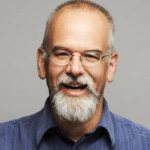 Bob Smietana is a national reporter for Religion News Service.
Bob Smietana is a national reporter for Religion News Service.




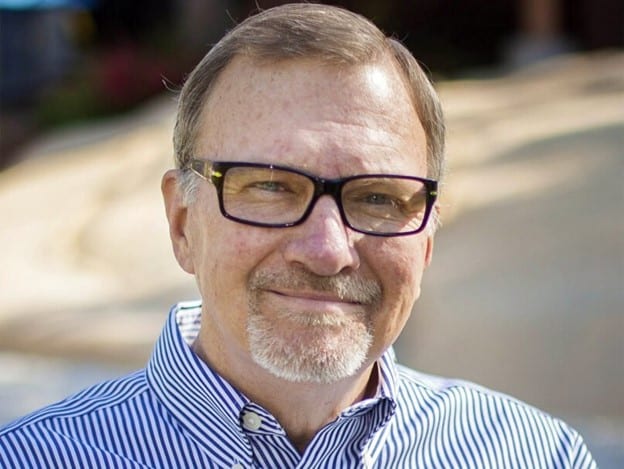
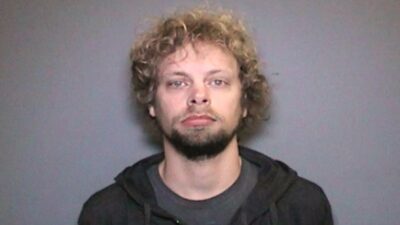
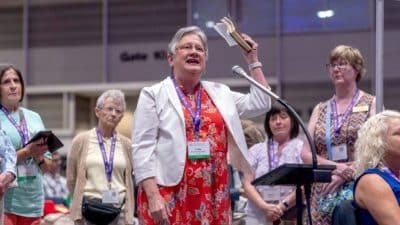
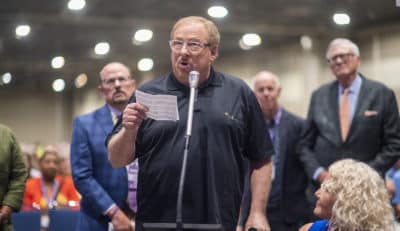
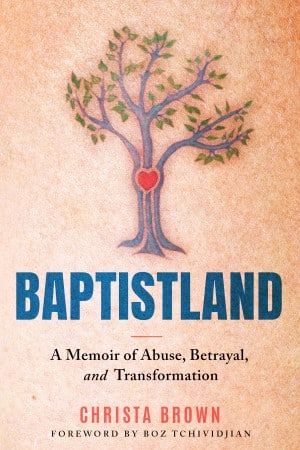

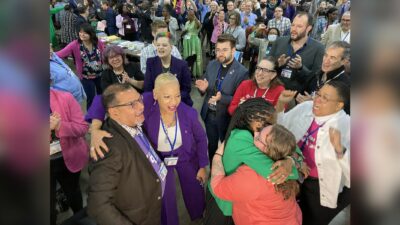
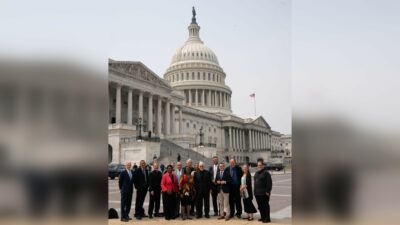
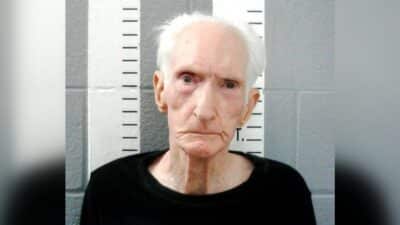








12 Responses
RIP Mr. Baker! He will be missed. One of the chapters of Celebrate used to meet at the Church I went to. The Church itself unfortunately gave only minimal support and the CR leader left on a sour note. I meet him and his wife every so often and have been trying to get him back in Church. Hopefully, they will. If not already attending somewhere else. Pray for a man named Eric. I was not a fan of CR either. As I already have a bad sense of anything deriving from Saddleback Church and the CR practice of distancing from Church. Regardless some people probably benefitred from CR and were able to break the chains of addiction. Which in reality we are all bound to our addictions and habits that are contrary to Godly, Holy living. Again RIP sir.
I can’t speak to the program because I don’t know that much about it. However, I know two people personally whose lives were transformed by Christ while going through Celebrate Recovery. One was dealing with drug addiction and now has been clean and thriving for decades. The other found freedom from same-sex attraction, served in missions for several years, and is also doing well.
Dirk, please don’t use “we” and “all”! It is simply not true that we are “all” bound by habits and addictions that are contrary to Godly living”.
What Jesus does, He does perfectly
“Jesus answered them, Verily, verily, I say unto you:
Whosoever committeth sin is the servant of sin.
And the servant abideth not in the house for ever: but the Son abideth ever.
If the Son therefore shall make you free, ye shall be free *indeed*” (John 8:34-36)
The word “indeed” used here is ὄντως in Greek and means: “TRULY” (as opposed to pretense)
It’s very emphatic!
MHEUSTON, Indeed, Certainly, Verily, For Real, and Absolutely!
I know that these so-called recovery programs can help people break a certain cycle they are on, but they don’t offer the Gospel which is the Truth. The Gospel of Jesus provides true freedom from our old addictions, habits, and sins. Mr. Dirksen, WE are no longer bound.
Recovery programs (and most churches) on the other hand expect you to sign up for a lifetime membership of sin-management and behavior-modification services. The Department of Corrections provides similar services, but at least they let you go after you serve your time.
WALTER – I think you are selling the recovery programs short, and over-simplifying the gospel.
I’ll speak from life experience here. I have not gone through a 12 step program myself, but I can say that I know people who have done so in earnest. Those who have gone through the programs are refreshingly honest, authentic and comfortable with who they are (for better or worse). On the other hand I’ve met many Christians who (appear to me at least) are not self aware by any stretch, guarded, and inauthentic. Whereas 12 step programs really put an emphasis on personal accountability and owning the underlying issues that drive addictive behaviors, Christians (not all of them) can sidestep the hard work by claiming things of the past are “covered under the blood” or dismiss unfinished business from the past because “they are a new creation” and so on. There is a lot to be said for systematically confronting people you have harmed (perceived or real) and deliberately taking steps to reconcile wrongs with vulnerability, honesty and accountability. To be fair, I know Christians who are genuine, authentic and trustworthy. For me, it’s more of the exception than the rule.
If you’re looking for a question in my statement, help me understand how the presentation of the gospel produces a better sense of freedom than a 12 step program. I’m not looking to throw out a loaded question here — just looking for a considerate response.
Hi Tony, I agree with you on many points. Such as how many Christians are “not self aware by any stretch, guarded, and inauthentic.” And I also know people in 12 step programs who have been able to address underlying issues that drive addictive behaviors. The deficiency of these programs, as with most treatments, is that they don’t go far enough. They do not address the root of the problem, which is what Jesus and his Apostles call sin. Unfortunately, the “visible church” does not address the root cause either, hence all the visible hypocrisy. People choose to sit in church pews for a variety of reasons, but one of the reasons is that provides temporary relief from their chronic illness of sin. I have even heard many pastors over the years describe their church as a “hospital for sinners”. Well who wants to attend a hospital every week? I do everything I can to stay away from hospitals.
And, so it is also with the recovery programs. They no doubt have some value, but they don’t come close to what the True Gospel provides. They don’t have that power. The power of the True Gospel is that same power that raised Jesus from the dead. It is the only thing that can truly change a person. Or more accurately, raise a dead man to life.
Regarding the accountability or personal responsibility aspect, I believe the visible church fails horribly in this regard. We’re all reading the same news articles. But are recovery programs any better? I understand that accountability is part of their focus, it’s one of the “steps”, but who is holding them to the institutional standards that we are demanding of churches, colleges, and employers? Are they free from error? Is there no abuse of power within their ranks? It would be naïve to believe so. In fact, given that anonymity is one of their most sacred principles, they have a system in place that pretty much guarantees that abuse can easily be hidden.
But again, this does not mean that the visible church is any better. They have systems that allow evil to flourish also. But this is not how the True Gospel works or what we find in the writings of the Apostles. Paul said, “Expel the wicked person from among you”.
I don’t consider myself an “evangelist” so I won’t pretend that I can fully articulate my understanding of the True Gospel and all of it’s theological implications. I am not an apologist, praise God! I know that I am living proof though. And I know what Jesus’ words are. Jesus said, “Narrow is the gate and difficult is the way which leads to life, and there are few who find it”. And he said, “If you love me, you will keep my commandments”. And he said, “If you continue in my word, then you are truly my disciples”.
We don’t need church buildings or paid preachers to know what Jesus’ commandments are. I recommend to anyone interested to start with Matthew 5 – 7. A genuine person who is sick of their sin, and believes that Jesus died and was raised so that he or she could be healed and forgiven of their sin, will want to be obedient to his commandments. This is not obedience to the bishop, senior pastor, the elders, or to whatever theological traditions man had fashioned.
Finally, it has to be lived out. There is too much cover up in the church and in recovery. True freedom is walking in the light and that, in my opinion, is exclusively in the True Gospel of Jesus. I hope this helps, and may God bless you.
Thanks. Might look into that sometime. I think of the Prophet who said: Our works are like filthy menstrual rags. I take that to mean everyone of us deserve hell. So in turn would mean we all have serious issues.
Walter and Tony –
I am really appreciating reading this respectful debate. I understand both sides, too. I view 12 step programs in the same way I view secular charities – addressing a need in an impactful way, but not uprooting, exposing, and addressing the cause that created the need. Likewise, I have seen ministries be “so heavenly focused that they are no earthly good” (to summarize Tony’s concerns).
My question is – does it have to be “either/or”? I think there’s a way to take the 12 step programs and do a better job of implementing the healing message of the gospel.
I know Tony Evans/OBF has a reputable program that starts with proper language. Tony has preached that he does not want people to say “I’m an alcoholic/drug addict/etc” and define themselves by their sin but by who they are in Christ. Perhaps that’s a start?
@Walter/@MH- Yes thank you. This is constructive and helpful to me.
As to the “Can we have both?” question, I think the answer is a profound Y-E-S. To go even further, I’ll give you the secret ingredient. The distinction here is regarding the application of the Bible/Church/Gospel as a SUBSTITUTE compared to a SUPPLEMENT.
It’s my belief that what people need is a supplementary approach, but take a substitutionary route. Here is what I mean. Suppose I had a big conflict with you and we both said and did things that were hurtful to one another. To confront you and acknowledge my contributions to the problem would be a bit humiliating and asking for your forgiveness puts me in a vulnerable position. It’s not an easy path. The other thing I can do is spiritualized it and ask GOD for forgives and blame the misdeeds on the spiritual forces coming from Satan. In doing so I can totally avoid the awkward (but good) conflict with you that hopefully leads to repair. In my mind, I have the virtuous position of “wrestling with my sins with God”. As you’re reading through this scenario you’re hopefully picking up on the fact that I’d be taking a more cowardly approach and avoiding hard work. You’ll probably think there is no shortage of scripture and sermons that direct us to take the more healthy approach to addressing conflict and personal sin. Yes I know. While that’s still the case, we routinely witness cowardly and passive behaviors from Christians, particularly leaders. When complex and circular bible references are brought up the waters get very muddy for a problem that can often be solved with a simple conversation. That’s why I appreciate the simplicity and honesty the 12-step programs prescribe. Once you’ve got the basics covered (and only then) is it useful to introduce the spiritual element (at least in my opinion)
MH and Tony,
I am not familiar with Tony Evans but I am familiar with Jesus and his commandments and teachings. I have pasted his words in response to a couple of the scenarios you’ve proposed:
“Suppose I had a big conflict with you and we both said and did things that were hurtful to one another. To confront you and acknowledge my contributions to the problem would be a bit humiliating and asking for your forgiveness puts me in a vulnerable position. It’s not an easy path”. – Tony
“So if you are offering your gift at the altar and there remember that your brother has something against you, leave your gift there before the altar. First go and be reconciled to your brother; then come and offer your gift.
Reconcile quickly with your adversary, while you are still on the way to court. Otherwise, he may hand you over to the judge, and the judge may hand you over to the officer, and you may be thrown into prison. Truly I tell you, you will not get out until you have paid the last penny”. – Jesus (Matt 5:23-26)
“…we routinely witness cowardly and passive behaviors from Christians, particularly leaders”. – Tony
“Not everyone who says to Me, ‘Lord, Lord,’ will enter the kingdom of heaven, but only he who does the will of My Father in heaven”. – Jesus (Matt 7:21)
“But to the cowardly and unbelieving and abominable and murderers and sexually immoral and sorcerers and idolaters and all liars, their place will be in the lake that burns with fire and sulfur. This is the second death”. – Jesus (Rev 21:8)
Sad loss. He brought through his ministry lifesaving truths to my family. Rip
I claimed to be a Christian for 10 years before I realized that I didn’t know if God existed. I certainly claimed to, but I was publicly living as though He didn’t exist. From that lack of regard for God sprung an addiction that consumed me, I’m living with the consequences today, although as John Piper says, I’m better than I deserve. My experience: addiction is not merely a ‘certain cycle’ as a commenter mentioned on this thread, it’s a VERY visible symptom of a deeper spiritual poverty. Four years ago, I begged God to reveal himself to me, my life was spinning out of control. I went to a 12-step meeting (one of the S- ones for all you 12-steppers out there), and it was a solid stepping stone for me. At that point, I didn’t need theology: I needed to know that there was a God. To this day, I still need a daily reminder that God exists. The 12-step programs (including and especially) the secular ones are a solid first step to coming out of the delusion that I am the center of the universe, that I am God. Sadly, most folks who go to 12-step meetings don’t get that it’s only a first step, it’s not even the door to heaven. For me, I started attending a church, and re-discovered Jesus, and for the first time begged Him for forgiveness and asked Him to be my Saviour. I was converted, for the first time ever, I was a Christian!!!!
As for Celebrate Recovery and Mr. Baker: I’m forever indebted to the latter for his bravery in setting up a program for addicts within the church (such a brave thing, especially in an environment that may not have sympathy for addicts, speaking from personal experience here). I love how Jesus and the Father and the Spirit tie into my recovery, I love how I’m a child of the King, that’s what CR reminded me. I’m not just a poor addict, but a child of God who struggles with addiction. 12-step programs (including CR) remind me that though my sins are forever forgiven and cleansed by my Saviour, I still need to deal with them by bringing them to the light. Why? Otherwise I forget that I’m a sinner and forget that I need God. Anyways, thanks for letting me share.